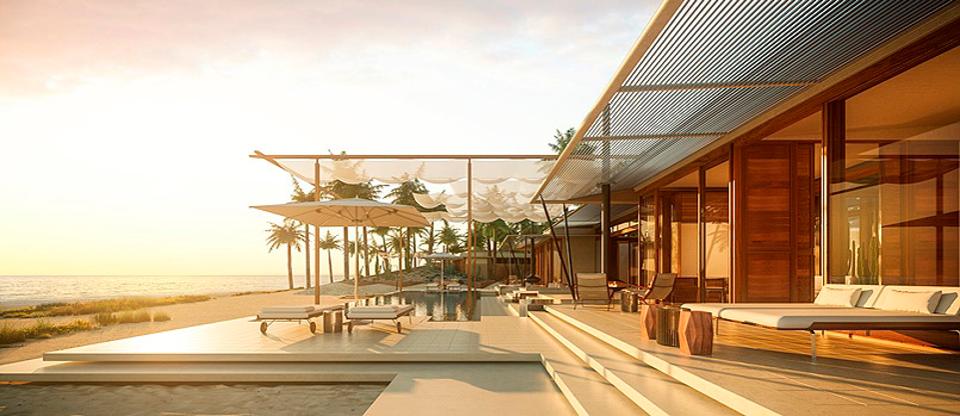The old-fashioned ideals of hotels are all well and good, but as the market has changed in recent years there has been a larger amount of smaller, independent, boutique hotels being built both in city centres and in more remote and rural locations. Architecture firms with the expertise in designing hotels have had to adapt to this new type of approach to hotel design. There are very different definitions to how a traditional hotel is designed when compared with a modern, boutique hotel. Here, we’ll look through some of the functional and aesthetic differences and how this has an impact on the way hotel architects function.
There are two main things that make a boutique hotel stand out when compared to a traditional hotel. The first is that there must be a certain sense of luxury. The second is that it must have character and an individual streak that is stamped all over the property. Both of these things must be delivered in a way that evokes the spirt and ideals of the hotel owners, whilst delivering a style that is stunning in aesthetic, practical, and also is created with a fine attention to detail.
It isn’t just the overall design of a boutique hotel that must be comprehended, but instead the framework that includes all interconnecting aspects of the hotel and the hotel experience. This begins with the check-in process, where guests must feel comfortable and welcome from the moment they step inside the hotel. The hotel lobby must immediately scream out what the hotel is all about, with enough space for multiple check-ins and check-outs at any given time, and an area that becomes a place guests enjoy spending time in.
The lift and stairs, and the corridors, are an important part of hotel design and architecture that are often overlooked. Boutique hotels, especially modern versions, are more likely to look towards a sustainable operational approach. This can be achieved with clean design, sustainable and local materials used in the building work, and smart technology that ensures lights and heating are only used as and when it is absolutely necessary.

Obviously though, it is important that the bedrooms themselves are the prize asset and depending on the type of boutique hotel there could be different themes to different bedrooms, or at least a strong theme that connects all of the bedrooms throughout the property. Bathrooms should be spacious and clean, bedrooms fluffy and comfortable, with the focus on quality and luxury at all turns. A boutique hotel must always feel like an exquisite experience.
Hotel architects must be adept at offering a flexible service when it comes to putting together designs for modern, boutique hotels. The expertise of designing hotels of any kind is a specialist area, but there are tweaks and nuances to how a boutique hotel should be designed. There is often a different target market, as well as different aesthetic features and desires for a boutique hotel, and the best hotel architects will understand these different needs.
